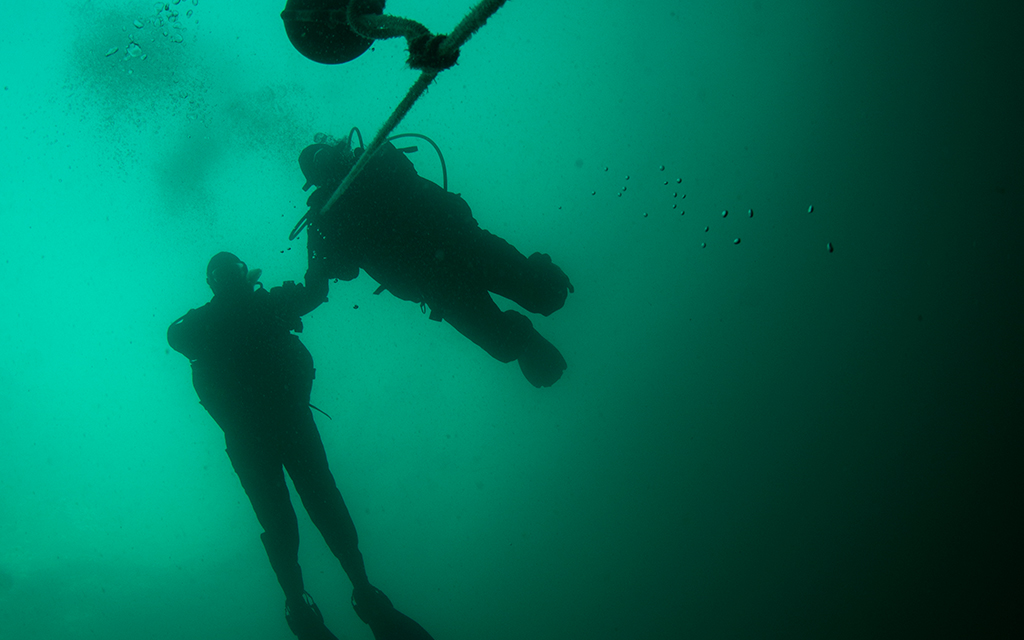
Sitting here and musing over each month’s contribution, I often reflect on the range of questions we get at BSAC HQ. Many centre on various aspects of where responsibility for diving actually lies.
More often than not at the heart of the discussion - or argument - lies the imbalance between training, qualification, membership, Safe Diving, branch & Diving Officer authority and an individual’s right/self-determination to do what they want to do regardless and/or in spite of the other viewpoint.
One of the attractions of going diving is that it allows us a few hours away from the pressures, constraints and rules & regulations of daily life and we should celebrate the opportunity. However, the thing that lets us get out of sight of that ‘real-life’ is a somewhat alien environment not designed to support life as we know it and demands respect.
Limits
I have covered before how our training, equipment, experience etc. allows us to enjoy that alien environment safely. That still holds true and is all geared to ensuring that we can continue to enjoy our sport safely. Virtually throughout the life of the BSAC incident reporting system, every Incidents Advisor from inception to date has made statements in the report along the lines of, “As has been stated many times before, most of the incidents reported within this document could have been avoided had those involved followed a few basic principles of safe diving practice.”
And it remains the case still, the training, advice and guidance is there for a reason.
Infrastructure
Within BSAC there is a clearly defined infrastructure that is designed to help support diving safely. An individual’s perception of it often depends on where they sit within that infrastructure (and is frequently the starting point for the differences of opinion mentioned above). BSAC's National Diving Officer is responsible for all diving and training within BSAC. They exercise part of that role by appointing an NDC, Chief Examiners and other advisors to develop training programmes, train and examine instructors and a host of other services that are then provided to the membership.
They also delegate their authority for diving and training within a branch to the Branch Diving Officer who in turn can (and should) delegate their authority as appropriate to Dive Managers (DM), for diving, and instructors, for training. In turn divers and students act under the authority of and have a responsibility to their DM and/or instructor as appropriate.
Overall the infrastructure is intended to provide skill, knowledge, experience and mutual support to everyone concerned and everyone has a role to play in the process and to facilitate rather than restrict.
Consequences
Of course, everyone goes on holiday at some point and suitably qualified individuals may want to organise their own diving. Both should be encouraged and whilst not directly under the authority of your Diving Officer it is still worth keeping them informed (they may even like to come with you). In fact, one of the few reasons why you wouldn’t want to keep your DO informed would be because you are knowingly going to exceed your training, experience, depth limits or Safe Diving. Given the potential consequences of doing so consider the impact a serious incident may have on the other members of your branch and especially the Diving Officer, as well as your family? Self-determination is something that we should all be encouraged to do but it comes with it a personal responsibility for ourselves and others on whom our actions may also impact. Our rights do not extend to deliberately disregarding our training, Safe Diving and other limits any more than breaking the laws of the land.
Think SAFE – Dive SAFE
Jim Watson
BSAC Safety and Development Manager
Ready to further your training and become a scuba Instructor?
Discover the BSAC Instructor training programme or book an Instructor Foundation Course today.

 Author: Jim Watson | Posted 18 Sep 2019
Author: Jim Watson | Posted 18 Sep 2019


